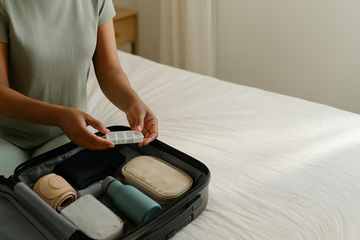Living with a Hernia: Daily Management Tips
Effective Strategies to Enhance Your Lifestyle
A hernia doesn't have to define your daily life. Despite the discomfort and adjustments it necessitates, many individuals continue to lead active, fulfilling lives after a hernia diagnosis. This comprehensive guide offers practical advice for managing hernia pain and symptoms day-to-day, helping you navigate the complexities with ease. From modifying daily activities to understanding when medical attention is necessary, we will explore essential lifestyle changes, dietary recommendations, and exercise tips that can significantly improve your quality of life while living with a hernia.
Daily Activities and Modifications
Living with a hernia requires certain modifications to daily activities to avoid exacerbating the condition. Start by understanding the limits of your body. Activities that increase abdominal pressure, such as heavy lifting, straining during bowel movements, or prolonged standing, should be approached with caution. Employing proper lifting techniques, using supportive devices like hernia belts, and managing weight can alleviate pressure on your abdomen, reducing the risk of hernia complications. Ergonomically adjusting your workspace to promote good posture can also significantly help in managing daily discomfort.
Ergonomic Adjustments
Consider setting up an ergonomic work environment that ensures minimal strain on your abdomen. Adjustable chairs, standing desks, and supportive cushions can make a considerable difference.
Exercise and Physical Activity Guidelines
While strenuous activities might pose risks, maintaining a healthy level of exercise is crucial. Gentle exercises like walking, swimming, and specific yoga poses can strengthen the muscles around your hernia site without undue strain. Always warm up before exercising and avoid exercises that cause pain or discomfort around the hernia area. Consulting with a physical therapist who can tailor an exercise program to your specific needs is highly beneficial. These professionals can guide you through safe practices that not only keep you active but also protect your hernia from worsening.
Diet and Nutrition Considerations
Diet plays a pivotal role in hernia management. A balanced diet high in fiber can prevent constipation, thus reducing abdominal pressure. Incorporate fruits, vegetables, whole grains, and lean proteins to maintain a healthy weight and reduce strain on hernia sites. Avoid foods that cause bloating or gas, such as carbonated beverages and certain legumes, as these can increase discomfort. Staying hydrated is equally important, as it helps maintain digestive health and prevents constipation.
When to Seek Medical Attention
Recognize the signs that necessitate immediate medical attention to avoid complications such as hernia incarceration or strangulation. Symptoms like increased pain, nausea, vomiting, or a hernia that becomes hard and non-reducible are urgent matters. Regular check-ups with your healthcare provider can help monitor the hernia’s condition and prevent severe complications. Always follow the advice of your healthcare professional regarding treatment options, including surgery if it becomes necessary.
Key Takeaways
- Modify daily activities to reduce abdominal pressure and prevent hernia complications.
- Engage in gentle exercises tailored to your condition to strengthen muscles without straining the hernia.
- Maintain a high-fiber diet to enhance digestive health and manage hernia symptoms.
- Use ergonomic tools and supportive devices to alleviate discomfort during daily tasks.
- Seek immediate medical attention if symptoms of hernia complications arise.
Frequently Asked Questions
What are the safest exercises for someone with a hernia?
Safe exercises typically include low-impact activities such as walking, swimming, and specific gentle yoga poses designed to strengthen the abdomen without excessive strain. Consult with a physical therapist for a personalized exercise plan.
Conclusion
Living with a hernia involves mindfulness and adjustments, but it doesn't mean giving up on quality life. By integrating the recommended lifestyle changes, dietary practices, and appropriate physical activities, you can manage your hernia effectively. Remember, regular consultations with your healthcare provider are crucial to successfully navigating hernia management. Stay informed, stay proactive, and ensure your daily actions contribute to your health and well-being.
This information is intended for educational purposes and should not be considered a substitute for professional medical advice. Always consult your healthcare provider for personalized care.













